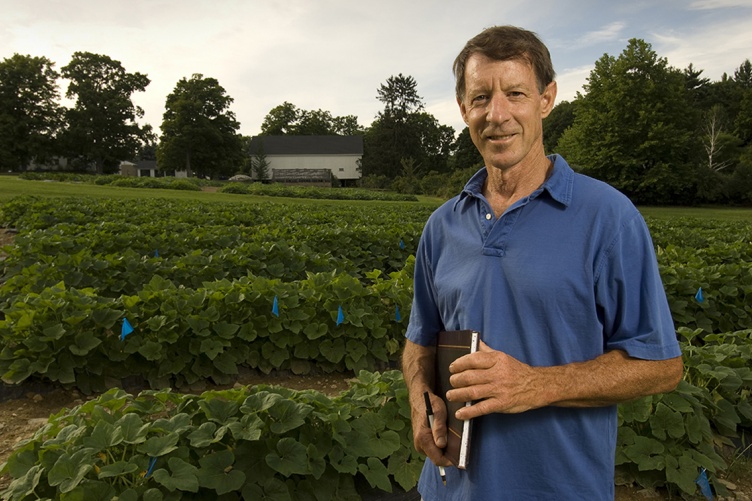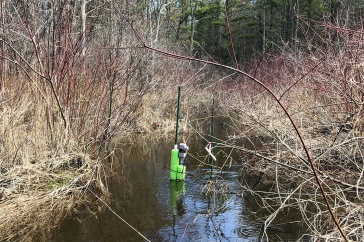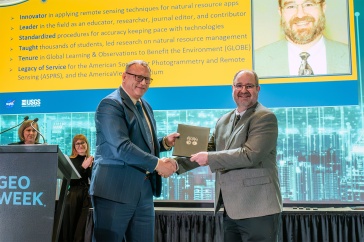
J. Brent Loy, professor emeritus of plant biology and genetics, and a researcher with the NH Agricultural Experiment Station.
J. Brent Loy, professor emeritus of plant biology and genetics, and a researcher with the NH Agricultural Experiment Station (NHAES), has been awarded the 2015 Vegetable Breeding Working Group Award of Excellence by the American Society of Horticultural Science.
Presented since 1992, the award recognizes breeding programs that have had a significant impact on the vegetable industry within the past 20 years by providing salient basic information and/or cultivar or germplasm releases.
Loy’s experiment station-funded work, which has largely taken place at the NHAES Kingman Farm and Macfarlane Research Greenhouses, has resulted in more than 60 new varieties of squash, pumpkins, gourds, and melons sold in seed catalogs throughout the world and represents the longest continuous squash and pumpkin breeding program in North America. Loy is responsible for 35 percent of the University of New Hampshire’s cumulative royalties earned since 1999. The university’s Innovator of the Year Award has been named after him since its creation.
“Dr. Loy is an exceptional member of a highly valued and valuable, but rapidly vanishing breed of agricultural plant breeders. He was an early adopter of a strategy to work closely with private seed companies to greatly increase access to germplasm and thereby accelerate his ability to develop and quickly market new, superior varieties of vegetables. This has proven to be a prolific approach, and his many varieties are widely available and used by farmers and gardeners worldwide,” said Jon Wraith, director of the NH Agricultural Experiment Station and dean of the UNH College of Life Sciences and Agriculture.
Founded in 1887, the NH Agricultural Experiment Station at the UNH College of Life Sciences and Agriculture is UNH’s original research center and an elemental component of New Hampshire's land-grant university heritage and mission. We steward federal and state funding, including support from the USDA National Institute of Food and Agriculture, to provide unbiased and objective research concerning diverse aspects of sustainable agriculture and foods, aquaculture, forest management, and related wildlife, natural resources and rural community topics. We maintain the Woodman and Kingman agronomy and horticultural farms, the Macfarlane Greenhouses, the Fairchild Dairy Teaching and Research Center, and the Organic Dairy Research Farm. Additional properties also provide forage, forests and woodlands in direct support to research, teaching, and outreach.
-
Written By:
Lori Tyler Gula, PhD | NH Agricultural Experiment Station | lori.gula@unh.edu | 603-862-1452
















































